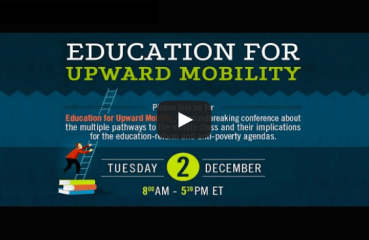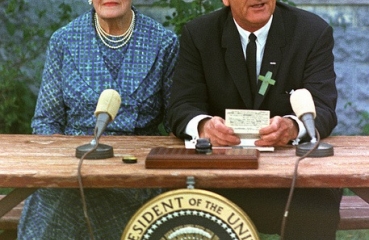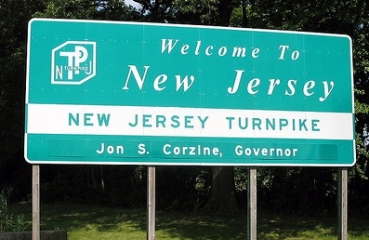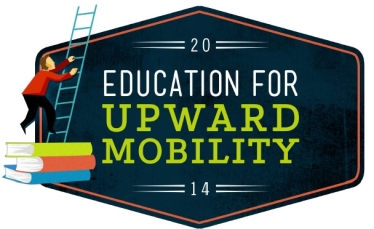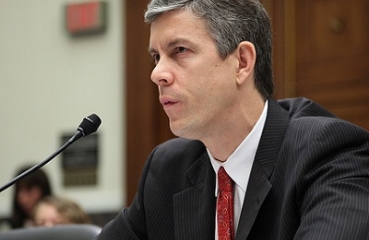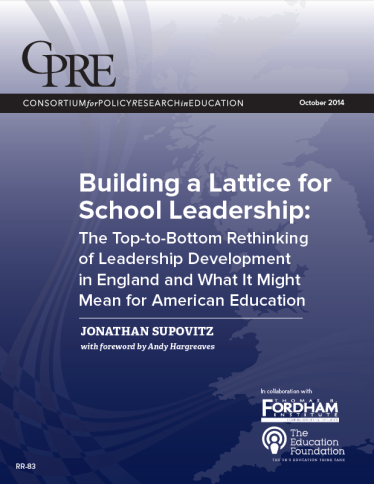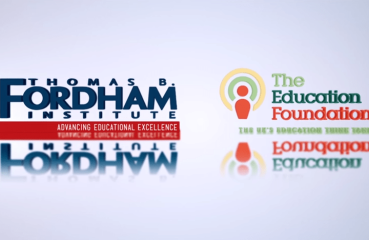Why aren’t Republicans trying harder to reach school-choice voters?
Michael BrickmanEditor's note: This post first appeared in a slightly different form on Watchdog.org.Republicans are still gleeful after their 2014 victories in the U.S. Senate and statehouses across the nation. They should be, but they should also take heed.
Videos from the Education for Upward Mobility conference
A daylong investigation into the role education can—and must—play in promoting upward mobility.
On The Road to Better Accountability: An Analysis of State Charter School Policies
Jessica PoinerNew report on authorization practices across the United States.
Predictions and predilections for a new ESEA
Michael J. PetrilliHow to quiet cries of federal overreach. Michael J. Petrilli
If charters work, what is the reason?
Editor's note: This post is the second entry of a multi-part series of interviews featuring Fordham's own Andy Smarick and Jack Schneider, an assistant professor of education at Holy Cross.
A system composed entirely of charters?
Editor's note: This post is the first entry of a multi-part series of interviews featuring Fordham's own Andy Smarick and Jack Schneider, an assistant professor of education at Holy Cross.
Education and upward mobility
Michael J. PetrilliCollege isn’t the only springboard to the middle class. Michael J. Petrilli
VIDEOS: Education for Upward Mobility conference
A core assumption of the education-reform movement is that excellent schools can be engines of upward mobility. But what kind of schools? And to what end?
Implementing teacher evaluation in New Jersey
Having worked on educator evaluation reform at a state department of education, I do my best to keep up with developments related to the extremely tough work of state-level implementation. I follow New Jersey’s progress especially closely because I took part in the work there (and I’m certainly biased in its favor).
Introductory comments to "Education for Upward Mobility" conference
Michael J. PetrilliGood morning. It’s wonderful to see so many friends and colleagues here today. My name is Michael Petrilli, and in August I took over as the president of the Thomas B.
The reading paradox: How standards mislead teachers
Kathleen Porter-MageeYou can’t teach reading the way you teach other subjects. Kathleen Porter-Magee
Education for Upward Mobility
At the Education for Upward Mobility conference, the Thomas B.
Summer Melt: Supporting Low-Income Students Through the Transition to College
Ellen AlpaughA little effort can go a long way. Ellen Alpaugh
The Cristo Rey Network: Serving Sustainable Success
Jeff MurrayA look at the schools’ past, present, and future. Jeff Murray
Pathways to Education: An Integrated Approach to Helping At-Risk High School Students
Amber M. Northern, Ph.D.From Canada: an effective, replicable program. Amber M. Northern, Ph.D.
Turning the tables on the vocational ed debate
A college-track student looks back with envy at career-track schooling. Emily Hanford
Teacher leadership: Yet another charter school innovation?
Michael J. Petrilli, Amber M. Northern, Ph.D.In England, all schools feature “distributed leadership.” Here, not so much. Michael J. Petrilli and Amber M. Northern, Ph.D.
Punishing achievement in our schools
Chester E. Finn, Jr.President Obama’s contempt for the Constitution, and Secretary of Education Arne Duncan’s unfortunate disregard of that document, have been loudly and justly decried by critics of executive overreach. Less heralded, but equally troubling, is the mission creep of the Office for Civil Rights as it works to reshape the education world and to right whatever alleged wrongs it thinks it sees.
Ten rules for teaching reading with prior knowledge
Tim Shanahan[Editor's note: This is part two of a multi-part series on the use of prior knowledge in literacy. It originally appeared in a slightly different form at Tim Shanahan's blog, Shanahan on Reading.
Strong charter accountability in D.C.
I recently wrote about exciting new charter school results in Washington, D.C..
Building a Lattice for School Leadership
Jonathan SupovitzOver the past decade, the English government has revamped that country’s approach to school leadership. At the center of the reform is the sensible idea that school leadership needs to be a team endeavor. While not a new idea—there’s been for years plenty of discussion about “distributed leadership” on both sides of the pond—the Brits got busy actually making it happen as opposed to jawboning about it. Central to their leadership structure is the formalization of three levels of school leaders, each with distinct roles and responsibilities: headteachers who lead schools (equivalent to the principal’s role in the U.S.), senior leaders or deputy heads who assist the headteacher (similar to the vice principal role in American education but...
VIDEO: Leadership Evolving: New Models of Preparing School Heads
What does school leadership development in England look like, how is it changing, and what can other countries learn from the English approach?
Prior knowledge: Can we really level the playing field?
Tim Shanahan[Editor's note: This is part one of a multi-part series on the use of prior knowledge in literacy. It originally appeared in a slightly different form at Tim Shanahan's blog, Shanahan on Reading.]


